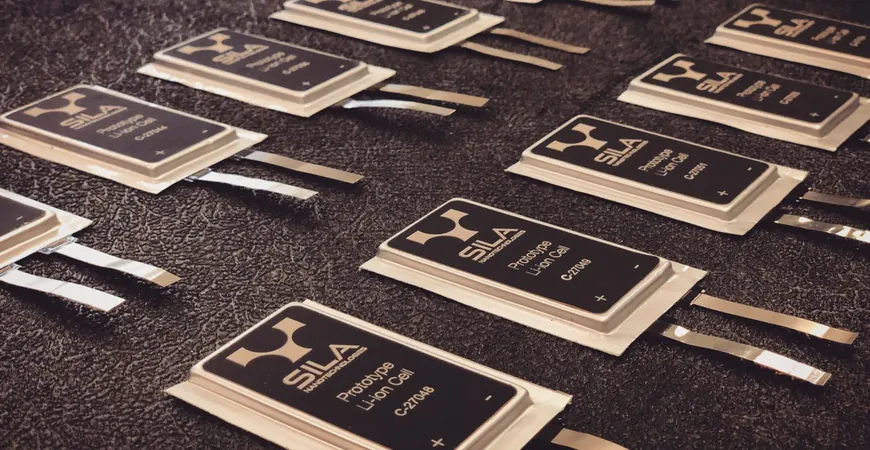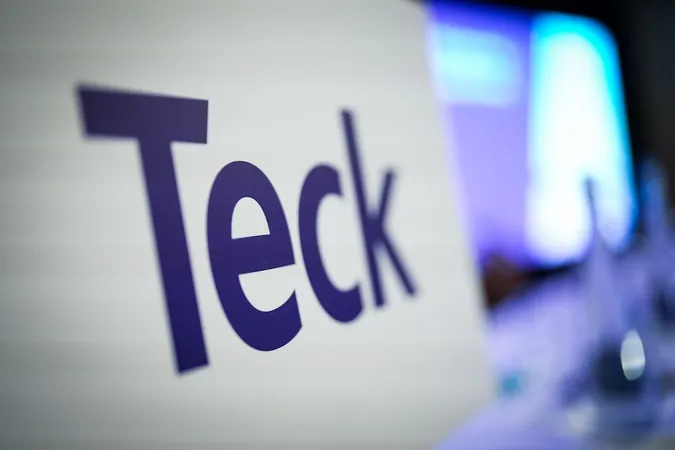
Why the U.S. is Falling Behind in the Race for Advanced Smartphone Batteries
2025-09-14
Author: Michael
The Battery Revolution Is Here!
Smartphones are evolving, but not always in favor of the U.S. market. Innovative companies overseas are transforming battery technology, and while phones are shrinking in size, their batteries are getting surprisingly powerful.
Meet Silicon-Carbon Batteries
At the heart of this evolution are silicon-carbon batteries, which pack more energy into smaller spaces. Phones like the Honor Power are equipped with staggering 8,000mAh batteries—powerful enough to rival some tablets. The Oppo Find N5 flaunts a sleek design with a 5,600mAh battery, proving that size and capacity can coexist beautifully.
A Global Trend, But Not in the U.S.
Although brands like Honor and Oppo have jumped onboard, leading players in the U.S. market—Apple, Samsung, and Google—are still on the sidelines. With foldable and ultra-thin models in development, the potential for these batteries is clear. Why the hesitation?
Understanding the Technology Behind the Buzz
Silicon-carbon batteries aren’t a full replacement for lithium batteries; they enhance them. The switch involves using silicon combined with graphite for the anode, capitalizing on silicon's high energy density while facing challenges in longevity.
The Longevity Dilemma
Silicon expands significantly during charging, which can lead to a shorter lifespan for the battery—something manufacturers are keen to avoid. The implications are particularly concerning for brands that pride themselves on long-lasting products.
Regulatory Hurdles and Shipping Concerns
Additionally, stringent U.S. shipping regulations make it less appealing to produce larger batteries. For instance, batteries exceeding 5,400mAh carry hefty shipping costs, affecting decisions made by companies. Even Chinese brands are adjusting their offerings based on regional regulations.
What Lies Ahead for the Smartphone Battery?
As silicon-carbon technology matures, we are likely to see more aggressive experiments with higher silicon percentages. Brands are expected to unveil increasingly powerful batteries, with models like the Oppo Find X9 Pro rumored to boast a 7,500mAh battery.
When Will Big Names Get on Board?
The spotlight remains on Apple, Google, and Samsung. As they explore the technology, they’ll be weighing the balance of power versus longevity before fully committing. Samsung, in particular, is cautious, recalling past battery disasters.
While Chinese companies lead the charge in adopting silicon-carbon technology, the irony isn't lost—this shift could undermine their own graphite supply dominance in the long term.
The Future Looks Bright (and Powerful)
The advancements in battery technology signal an exciting future for smartphone enthusiasts. But will the U.S. tech giants catch up, or will they risk being left in the dust?









 Brasil (PT)
Brasil (PT)
 Canada (EN)
Canada (EN)
 Chile (ES)
Chile (ES)
 Česko (CS)
Česko (CS)
 대한민국 (KO)
대한민국 (KO)
 España (ES)
España (ES)
 France (FR)
France (FR)
 Hong Kong (EN)
Hong Kong (EN)
 Italia (IT)
Italia (IT)
 日本 (JA)
日本 (JA)
 Magyarország (HU)
Magyarország (HU)
 Norge (NO)
Norge (NO)
 Polska (PL)
Polska (PL)
 Schweiz (DE)
Schweiz (DE)
 Singapore (EN)
Singapore (EN)
 Sverige (SV)
Sverige (SV)
 Suomi (FI)
Suomi (FI)
 Türkiye (TR)
Türkiye (TR)
 الإمارات العربية المتحدة (AR)
الإمارات العربية المتحدة (AR)